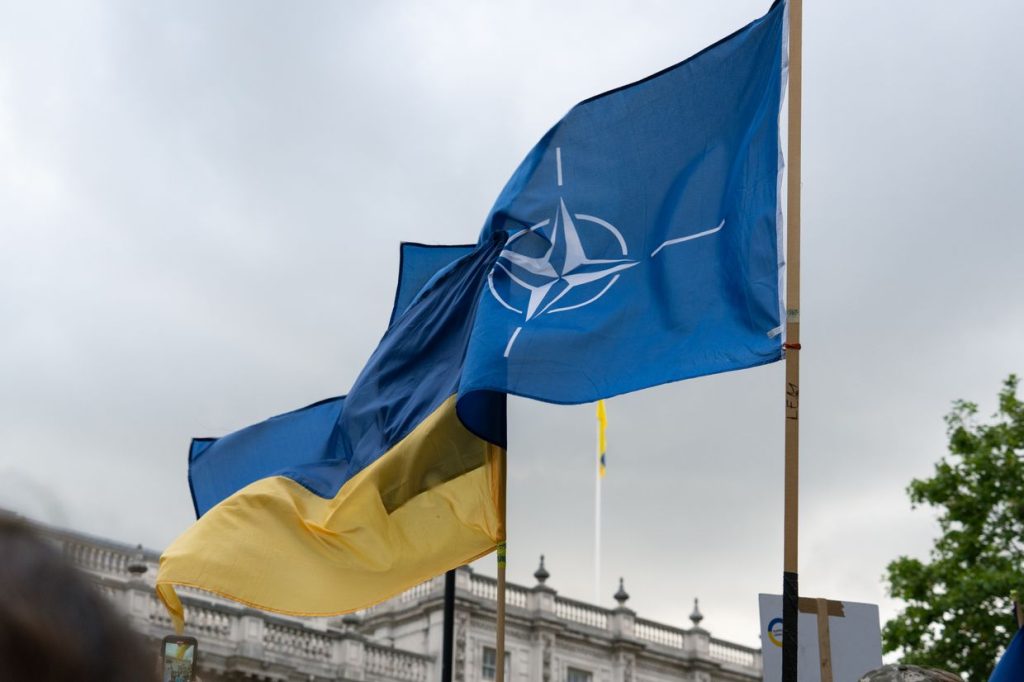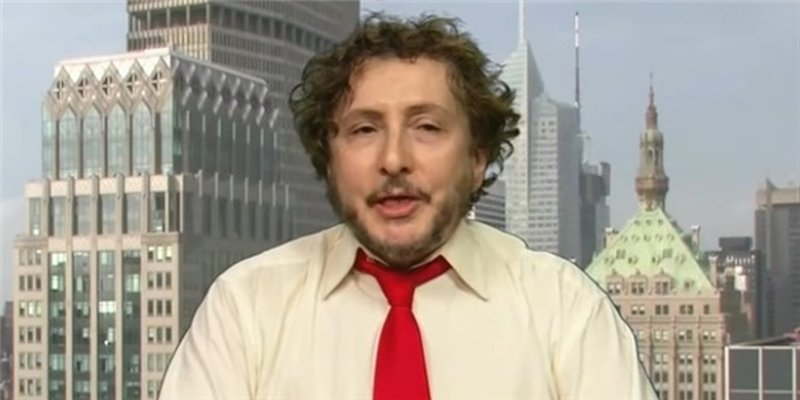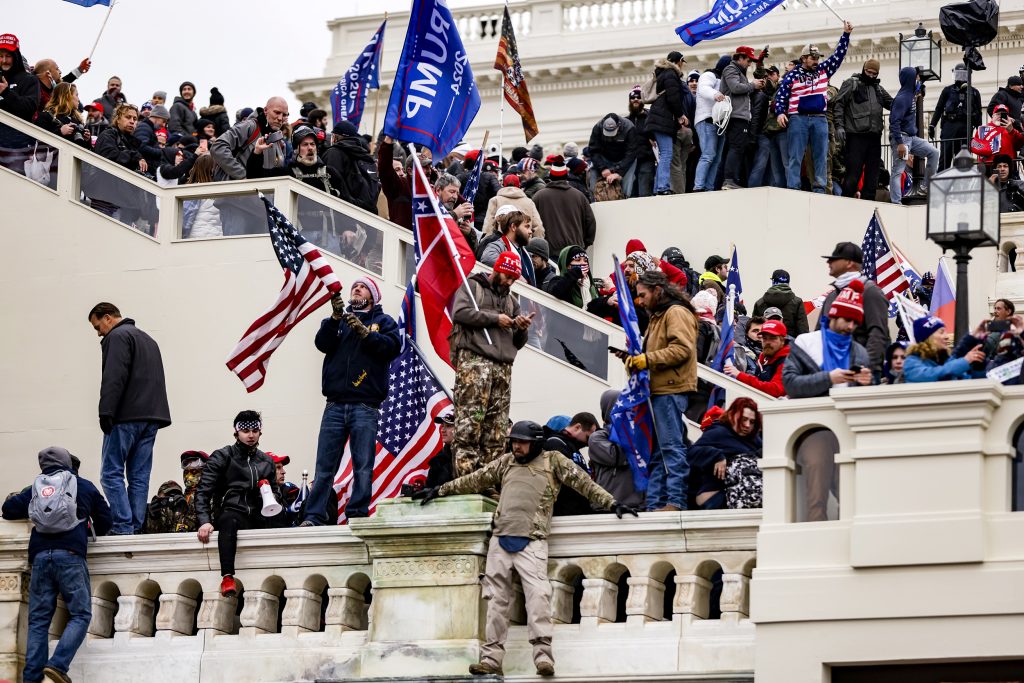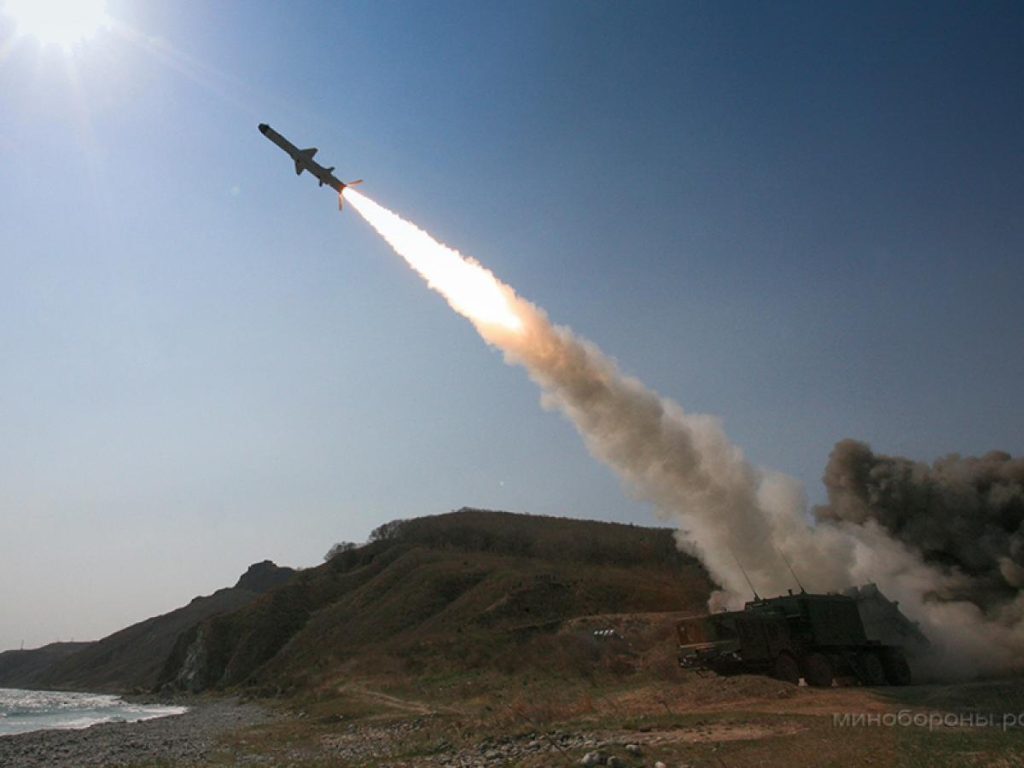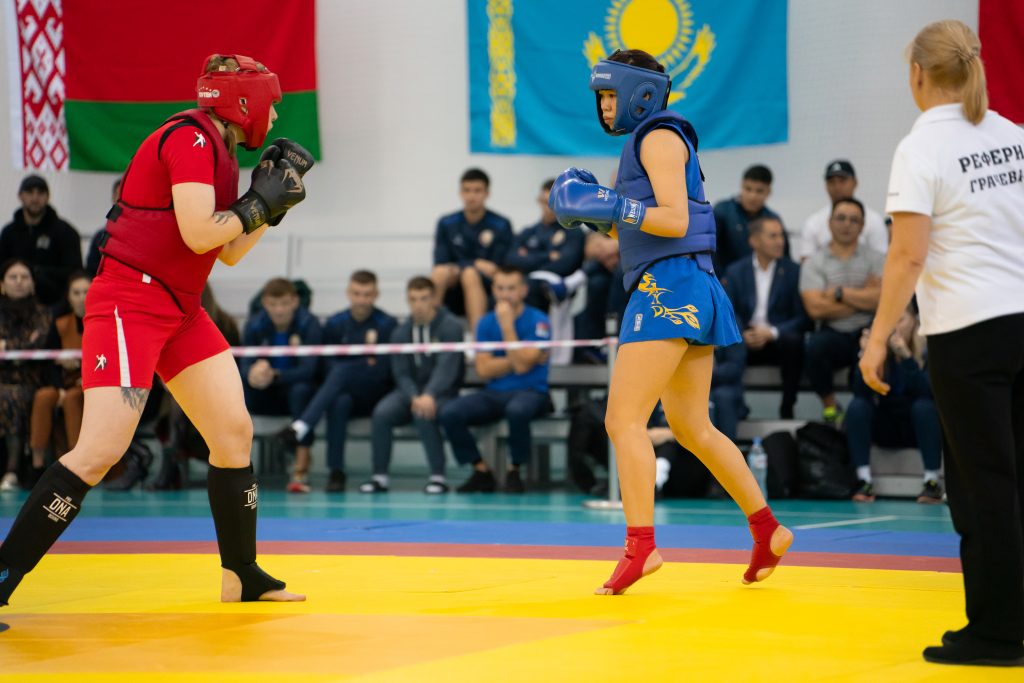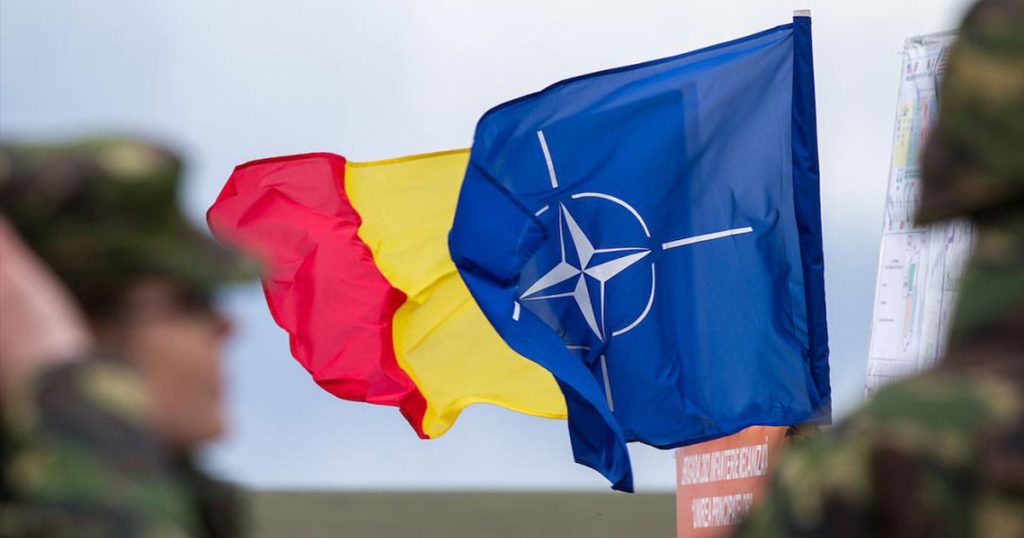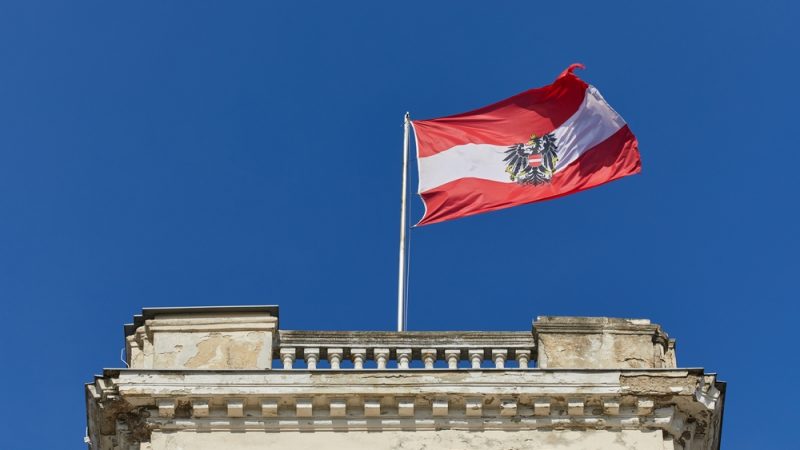Written by: Milan Milaković, Center for socio-political research of the Republic of Srpska
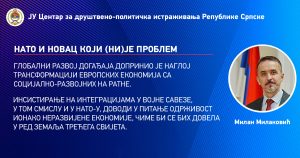
We are witnessing the events on the collective West-Russia relationship after February 2022. the years caused tectonic changes in the Euro-Atlantic and Eurasian expanse, with a marked potential to redefine the world order and the distribution of world power. Bearing in mind that these are processes of historical importance, far-reaching and comprehensive, their proper understanding is of existential importance for the Republic of Srpska. The wide range of measures applied by the collective West through the sanctions policy towards Russia are increasingly exerting their negative effect, but on those who initiated them, primarily on European economies, thus shaking the foundations of their strength, importance and influence. An additional factor in the multiplication of aggravating circumstances is caused by the West's spasmodic attempts to contain China's growth. It is paradoxical that European economies, by their choice, whether independently or under pressure from Washington, brought themselves into a situation of deprivation of access to cheap raw materials and energy sources, but also to the placement of goods on the globally significant Chinese market. As a result, such action has serious economic challenges, a decline in industrial production and living standards, and an increasingly difficult functioning of states, primarily the most developed of them – Germany – but due to a high degree of interdependence, and all others.
Nevertheless, the European NATO member states ' commitment to developing new capabilities in terms of carrying out broad-spectrum military operations prevailed. Analyzing the stated ambitions, it can be rightly said that this is a fundamental change in approach, given that European states have neglected their military capacities for more than three decades. We should not lose sight of the fact that in the post-Cold War period significant reductions in the number of military personnel and combat equipment were carried out. At the same time, investments in key military capabilities and ensuring that Europe's technological and industrial defence base is fit for its purpose were neglected. The key difference is that the focus of military activities in NATO's European members during this period shifted from a hypothetical conflict against the USSR to crisis management operations, or so-called crisis management. peace missions and the fight against terrorism. The survival of such a concept through previous years was only possible due to Europe's full reliance on the military capabilities of the United States. European countries, due to the lack of adequate self-identity in terms of Defense, have made themselves dependent on America. Thanks to the diverted financial resources, they gained the comparative advantage of facilitated economic development and the preconditions for creating a distinctive social policy, since the European budget allocations for defence purposes were negligible. By adopting a neoliberal approach to the economy at the same time, it was paid for by losing the sense of national belonging and traditional values of the peoples of Europe.
However, circumstances are irrevocably changing and the early life tempting Europe ceases to be in today's world. Taking into account the nature of the circumstances and global trends, there is no doubt that the given processes will have an impact on the Republic of Srpska. NATO's new strategic and doctrinal commitments, accompanied by increasingly militarizing the European Union, are an integral part of them. It is expected that the pressure of Western countries will intensify with the aim of integrating the Serbian space into the Western sphere through NATO or its isolation in order to prevent destabilization of the strategic depth of the collective West.

When analyzing a number of relevant factors that determine current processes, the need to take into account the increased financial allocations of member states for defense, not only NATO, but also the European Union, is increasingly pronounced. In the post-Cold War period, NATO promoted itself as an elitist prestigious club providing unparalleled opportunities for cooperation and economic development. For this purpose, affirmative texts were often published to confirm the correlation between membership and economic prosperity. In the state of relative peace and general euphoria that prevailed in the world after the end of the Cold War, pictorially illustrated through Fukuyama's "end of history," the attraction of membership led to NATO's expansion to the Eastern Bloc countries, but today's Changed Circumstances showed its true face. Namely, on the eve of the recent NATO summit in Washington, reaching the target of 2% of GDP for defense by 23 members was presented as a great success, unlike ten years ago and the summit in Wales in 2014. the year, when only three members (the US, Greece and the UK) Met. However, although 2% was considered the ultimate goal, there are increasingly positions that treat the predicted allocations only as the basis, and not the maximum. It is important to note that in the current time, five NATO members allocate more than that 2%: Poland 4.12%, Estonia 3.43%, USA 3.38%, Latvia 3.15% and Greece 3.08%. Although a formal consensus on increasing defense spending has not yet been reached, NATO members are still imposing new requirements for improving military capabilities, which in turn leads to significantly increased defense spending. Despite the fact that member states independently plan the development of their defense capacities, the goals are, however, primarily conditioned by the priorities of the Alliance. In this sense, the current example is Estonia, which in the post-Cold War period was recognized as a progressive economy among the states of the former Socialist bloc and which was precisely for this reason called the "Baltic Tiger." Rapid progress and acceptance of values was crowned with EU and NATO membership in 2004. years. However, in early September of the current year statements by Estonian officials about defense funding difficulties attracted media attention. Although it already allocates almost 3.5% of GDP to defense, significantly more than most member states, in order to fully achieve the new goals allocated by NATO, Estonia will be forced to increase defense costs to as much as 5% of GDP to reach the full capability of its own military forces. the eurozone, for a long period of time, has suffered the consequences of increased defense spending. Facing new obligations puts into question the stability of the functioning of the state. As a consequence of the unavoidable need for funds, the introduction of Defense taxes, the abolition of many social benefits, the introduction of tuition fees for previously free education, etc.are already being considered.
At the same time, the ambitions of the European Union regarding the development of its own military capabilities are increasingly expressed. Given that EU members are also members of NATO, this particular circumstance is a limiting factor in the autonomous operation of European military forces. Namely, Article 8 of the treaty specifies the actions of NATO members in terms of forms of association and action. In a particular case, the EU military forces are obliged to carry out activities that are not contrary to NATO, i.e. they can only be engaged as its assistance. Although the European forces are deployed as an extension arm of NATO, the allocations for this purpose are nevertheless separate, putting further strain on the already faltering European economies and their taxpayers. Unlike NATO, the European Union has no agreed obligations in the form of percentage amounts from GDP. however, according to the European Defence Agency data from 2022. the EU has collectively invested 1.5% of its total GDP in defence. The formal adoption of a strategic document called the "strategic compass" for security and defense, which passed the approval procedure only a few weeks after the start of the military conflict in Ukraine, indicates that EU spending in the defense domain will increase. EU action plan by 2030. the year is an integral part of the document, which as such is also complementary to the strategic concept of NATO, precisely because of the stressed commitment to harmonized action and primarily refers to the beginning of the implementation of the undertaken commitments on financial allocations for military purposes.
Current commitments in the development of new military capabilities of both NATO and the European Union are fundamentally changing the environment of the previously proclaimed concept of membership and the obligations arising from it. As a lesson for the Republic of Srpska, the fact that the global development of events has compounded the status of countries that are transforming their economies from social and development to war. In the epoch of the transformation of the international order, the question of the promoted privileged status of NATO member states and the benefits arising from it is gradually being updated, with the declarative right to choose accompanied by increasing financial allocations on the way to an uncertain future.
Source: And the money that is a problem – Center for socio-political research (cdpirs.org)
Title photo: www.forsvaret.dk
15. September 2024.


